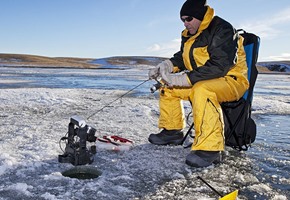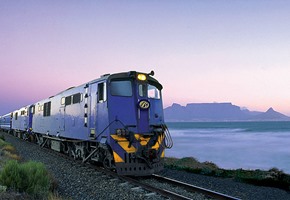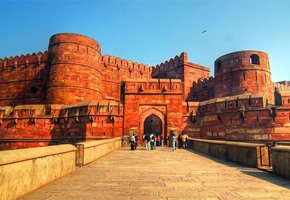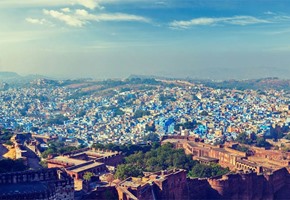In the last few years, the weight of human responsibility to protect the planet has been felt upon the shoulders of many. And with much of the news focussing on politicians pulling out of the Paris Climate Agreement, the rolling back of emissions standards, and oceans filled to the brim with plastic, it's more important than ever.
Most of us want to do our bit, but at the same time aren't able to (or don't want to) give up all the first world comforts we're lucky enough to enjoy. One of these is travelling for pleasure, seeing the world and encountering other cultures. But if you're anything like me, you'll be all too aware of your growing carbon footprint with each trip. And it's not just long-haul and domestic flights that are doing damage (that most literal aspect of travelling), tourists are also a strain on delicate economies and overpopulated urban areas, and can even indirectly contribute towards the exploitation of local workers.
Communities unable to handle the strain of becoming the 'must visit' destination of the season can face real pressure. The disposable lifestyles we're used to cannot properly be supported in locations where there might not be a regular waste collection service, or even reliable running water and electricity for native residents. Many also exist within delicate ecosystems that can be altered irrevocably much more easily than we'd like to imagine, though many considered to be far more robust are still facing problems; cities such as Venice and Barcelona are beginning to buckle under the pressures of multitudinous cruise passengers. So, what's to be done? There are a number of travel companies offering what on the surface appears to be 'responsible tourism', however there are, as of yet, no definable international standards set for such practises, and often all we have to go on is the company's word along with our own judgement. This is something big business can and will take advantage of, guilt about how sustainable our holidays actually are. It even has an industry name - greenwashing.
There's no need to lose heart however, as there are many independent hoteliers, restaurants and smaller tour operators that are blazing a green trail. Establishments like the Lazy Bear Lodge, a cosy eco-retreat in the middle of rural Canadian tundra made entirely from reclaimed timber and built from scratch by the owners themselves (the name lazy bear refers to the local polar bear population, and definitely not the proprietors). In fact, as larger numbers of tourists, as well as travel experts, become more familiar with the term eco-tourism, so its popularity grows; ABTA has predicted that one of the main 'themes' of travel in 2018 will be responsible tourism, where tour operators "strive not to harm animals, the environment or communities." Some package holiday companies have recently stopped offering animal excursions such as elephant rides and swimming with dolphins, and others will no longer promote attractions that feature captive marine creatures. It's predicted that more operators intend to implement initiatives such as giving back to communities, banning plastics from beaches and offering carbon-neutral tours in the coming years.
If you're travelling independently, that doesn't mean you have to succumb to the clutches of being non-environmentally friendly - there are plenty of options for a cleaner getaway. With a little thoughtful research, you'll come across plenty of options that won't end up costing you the earth either. An example? Perhaps on your travels around Europe you could take advantage of the often excellent public transport available, instead of hiring a car. Not only will you enjoy feeling smug about your environmentally conscious decision, you'll also be thrust into local life, allowing you to taste a much more authentic flavour of life wherever you are. You may also choose to stay in family-run B&Bs instead of large hotels owned by foreign investors, and visit local markets instead of malls filled with chain shops and restaurants. Then on your return, use the fast and efficient jungle drum that is the internet to highlight, on customer-powered sites such as TripAdvisor, if you had an experience somewhere you think others should avoid in future. A little knowledge goes a long way.
Awareness is growing in the west about our long-term environmental impact and the irreversible devastation this could inflict to countries all over the world, but that doesn't mean travel should be entirely off-limits - in many destinations residents rely on the income that tourism brings. We should however make sure, as much as we are capable of doing, that the benefits of our adventures are redistributed fairly and that the benefits ultimately outweigh the costs.






